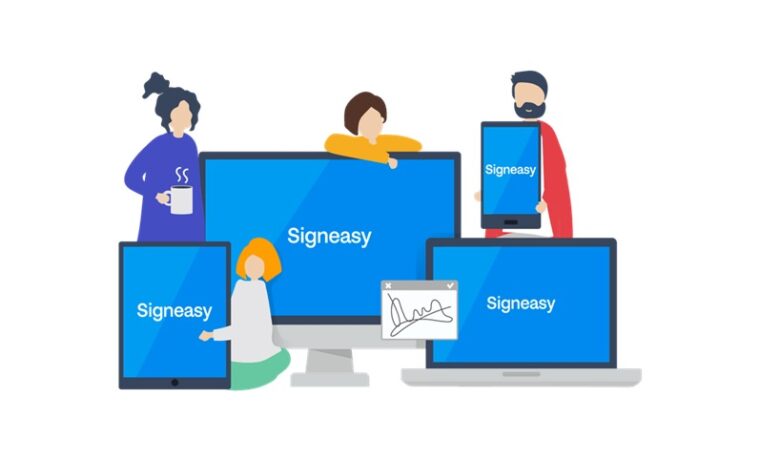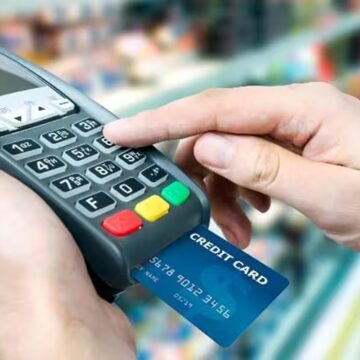The marketing industry operates in a dynamic and fast-paced environment, where effective communication and documentation are crucial for success. From client contracts and agreements to non-disclosure agreements and consent forms, the marketing industry heavily relies on various types of documentation throughout its processes. However, the traditional paper-based approach to document signing can be time-consuming, cumbersome, and prone to errors. This is where electronic signatures (eSignatures) have emerged as a transformative solution.
eSignatures are a digital alternative to handwritten signatures that provide a secure and efficient way to sign and authenticate documents electronically. They have revolutionized how businesses handle paperwork, enabling a seamless and streamlined approach to document signing.
The impact of eSignatures on the marketing industry is profound. It simplifies and expedites the document signing process, leading to significant time savings and increased operational efficiency. Marketing professionals can now collaborate with clients and stakeholders more effectively, regardless of geographical barriers, through the convenience of digital signatures. Moreover, eSignatures enhance client experiences by reducing turnaround times and providing a seamless signing experience.
The need for efficiency in the marketing industry
Efficiency is key to meeting deadlines, delivering campaigns on time, and fostering strong client relationships. The limitations and challenges of traditional paper-based signatures make it imperative for marketing professionals to seek innovative solutions that can streamline their processes and improve overall efficiency.
Electronic signatures offer a compelling alternative that addresses these challenges head-on, enabling marketing professionals to overcome the limitations of traditional paperwork and embrace a more efficient way of doing business.
A. The fast-paced nature of the marketing industry
Marketing professionals constantly juggle multiple projects, tight deadlines, and client demands. In such an environment, efficiency is paramount. Every minute saved in administrative tasks can be redirected towards strategizing, creativity, and delivering impactful marketing campaigns. However, the reliance on traditional paper-based signatures can significantly hinder the efficiency of marketing processes.
B. The challenges of traditional paper-based signatures in marketing processes
- Time-consuming processes: Traditional paper-based signatures require printing, physically signing, scanning, and mailing documents. This process is not only time-consuming but also prone to delays caused by logistics and the need for physical presence.
- Administrative burdens: Marketing professionals spend a significant amount of time managing paperwork, chasing signatures, and ensuring documents are properly stored and organized. This administrative overhead takes valuable time away from core marketing activities.
- Geographical limitations: Marketing teams often collaborate with clients, stakeholders, and vendors located in different regions. Traditional signatures require physical proximity or lengthy courier services, causing delays and hindering real-time collaboration.
- Error-prone and inefficient: Paper-based signatures are susceptible to errors, such as missing signatures, illegible handwriting, or misplaced documents. These errors can lead to confusion, disputes, and delays in marketing campaigns and client relationships.
The power of electronic signatures in marketing
By embracing the power of eSignatures, marketing professionals can streamline their document signing processes, resulting in significant time and cost savings. The benefits extend to enhanced collaboration, improved client experiences, and faster turnaround times.
- Time and cost savings: Eliminating manual paperwork and physical signatures means less time spent on administrative tasks, allowing marketers to focus on high-value activities such as developing creative strategies and engaging with clients. Additionally, eSignatures reduce expenses associated with printing, shipping, and storing paper documents.
- Enhanced collaboration and remote work capabilities: Marketing teams often work remotely or collaborate with clients and stakeholders across different locations. eSignatures enable seamless collaboration by providing a secure and efficient platform for document sharing and signing. Marketing professionals can collaborate in real-time, obtain approvals, and finalize contracts from anywhere, fostering effective remote work capabilities.
- Improved client experiences and faster turnaround times: With eSignatures, marketing professionals can enhance the client experience by offering a convenient and efficient signing process. Clients no longer need to print, sign, and scan documents, reducing friction and delays. This improved client experience builds trust, strengthens relationships, and contributes to faster project turnaround times.
How to create electronic signatures
By understanding the process of creating electronic signatures and exploring different methods of customization, marketing professionals can create personalized and professional signatures that reflect their brand identity and establish a strong impression in their digital documents.
Creating electronic signatures is a straightforward and user-friendly process. With the right tools, marketing professionals can easily generate their own electronic signatures in a few simple steps.
There are various methods available for creating electronic signatures to cater to individual preferences. One method involves drawing the signature directly on the device using a stylus or touchpad. This option provides a personalized touch, replicating the traditional pen-and-paper experience. Another method involves typing the signature using a selected font or stylized text. This method is quick and convenient, especially for those who prefer a consistent and legible signature. Additionally, some platforms allow users to upload an image of their handwritten signature, offering a familiar and authentic representation.
Use cases and examples in the marketing industry
Electronic signatures have found numerous applications in the marketing industry, revolutionizing various processes and improving overall efficiency. Here are some specific scenarios where eSignatures are particularly beneficial:
- Client contracts and agreements: Marketing agencies often deal with client contracts and agreements that require signatures. With eSignatures, these documents can be easily created, shared, signed, and stored electronically, eliminating the need for time-consuming and costly paper-based processes.
- Non-disclosure agreements (NDAs): In the marketing industry, NDAs are crucial for protecting sensitive client information and maintaining confidentiality. eSignatures offer a secure and efficient way to obtain signatures on NDAs, ensuring legal compliance and swift execution.
- Consent forms and waivers: Marketing campaigns and events often require participants to sign consent forms and waivers. By using eSignatures, marketers can streamline the signing process, making it convenient for participants to provide their consent digitally, whether they are physically present or not.
The future of electronic signatures in marketing
As electronic signatures continue to transform the marketing industry, their growth and adoption are poised to accelerate in the future. With the increasing need for streamlined processes and digital transformation, eSignatures have become an essential tool for marketing professionals. The convenience, efficiency, and security offered by eSignatures make them an invaluable asset in the modern marketing landscape.
Looking ahead, we can anticipate several emerging trends and technologies related to eSignatures in marketing. One such trend is the integration of eSignatures with marketing automation platforms, enabling seamless end-to-end workflows. This integration empowers marketers to automate the signing process, saving time and resources while ensuring compliance.
Additionally, advancements in mobile technology will make eSignatures even more accessible and convenient, allowing marketers to obtain signatures on the go from clients and stakeholders.
Another emerging technology in the eSignature space is using blockchain for enhanced security and authentication. Blockchain-based eSignatures offer a tamper-proof and transparent verification process, further instilling trust and reliability in signed marketing documents.
Conclusion
The impact of eSignatures in marketing is undeniable, enabling marketing professionals to save time and costs, collaborate seamlessly, and expedite turnaround times.
As we look to the future, embracing the power of eSignatures will be crucial for marketing professionals seeking to stay ahead in a competitive landscape. The benefits of adopting electronic signatures are far-reaching, from increased productivity and improved workflows to enhanced security and compliance.
So, take the leap and embrace the future of marketing with electronic signatures. Start harnessing the power of eSignatures today to propel your marketing efforts, achieve greater efficiency, and drive success in a digitally transformed industry.
E-signatures are one example of why a company needs to keep their technology up to date. To learn more on the dangers of outdated tech for your business, please see the tips below.
Provided by CIO Solutions – expert it services Fresno
















